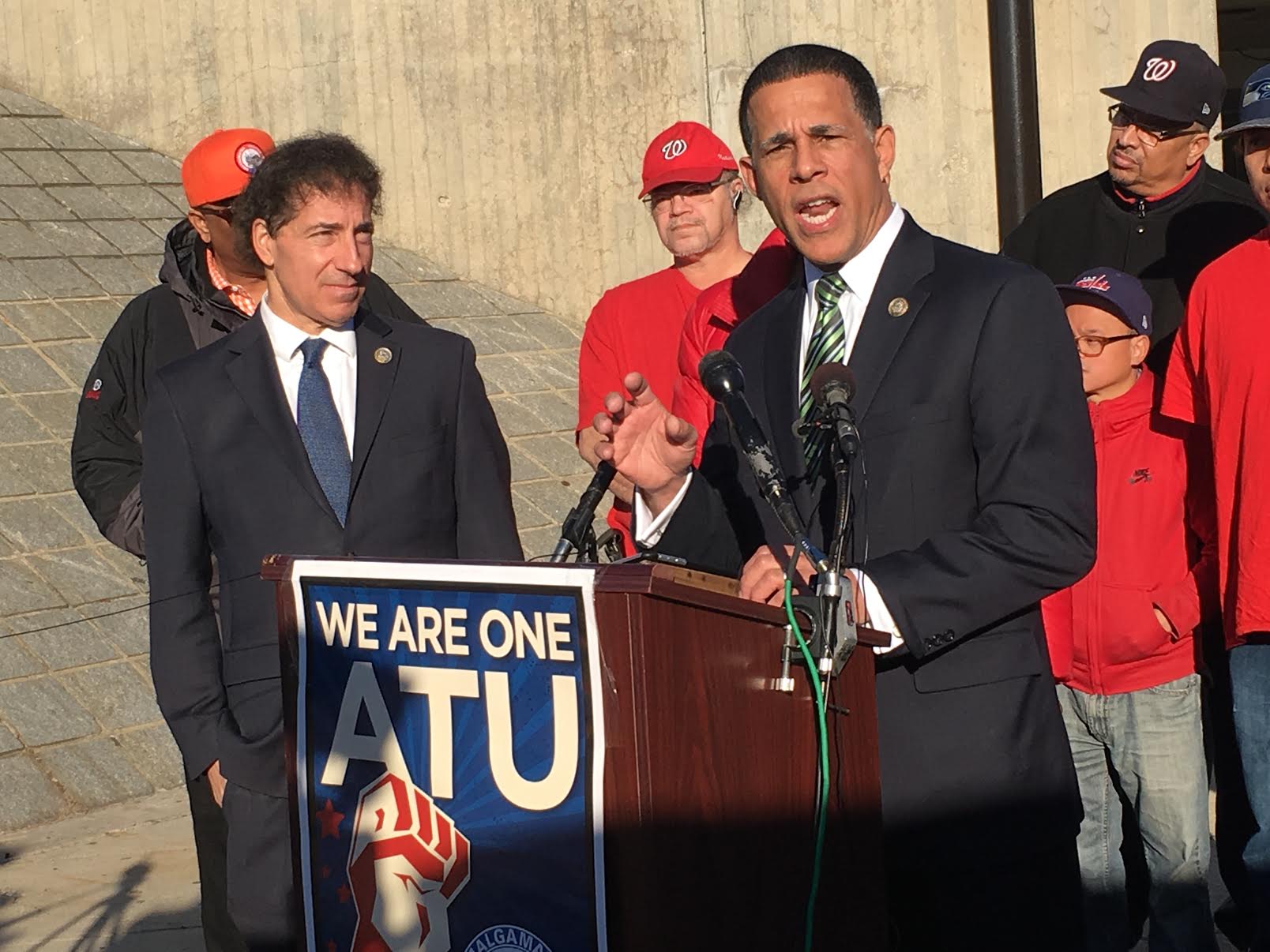Maryland Democratic Reps. Anthony Brown and Jamie Raskin announced a bill Tuesday morning that would attempt to make the rail service safer and more affordable for users.
The bill, which Brown unveiled and Raskin will co-sponsor, would enact a year-long pilot program with a $2.50 flat fare on trips starting from three stations that the Washington Metropolitan Area Transit Authority will select, with one in each local jurisdiction — Maryland, Virginia and Washington, D.C.
“Few regions in our country rely on transit more than the national capital region,” Brown said.
“In many ways, it is America’s transit system.”
[Read more: UMD SGA discusses possible program reducing student Metro fares]
The bill aims to encourage more people to use the Metro, which has seen decreased ridership. About 191 million riders used the service in fiscal 2016, down from about 206 million people the previous fiscal year, according to CBS.
Jackie Jeter, the Amalgamated Transit Union Local 689 president, a labor union, said at the event that the group is “committed to working towards substantive improvement to Metro so that it is no longer a system that this region tolerates, but is one that is effective, safe, reliable and affordable.”
Raskin was in high school when the Metro was being built, and it changed his life, he said.
“It opened up a whole great region to me in terms of being able to get to museums and monuments and meet kids from other places,” he said. “We’ve got to restore the glory of the Metro system that we all experienced when it was first built because it really turned our area into a world-class capital region.”
ATU International President Larry Hanley praised the bill as a “sensible approach … to ensure reliable and affordable transit service for the riding public in the DMV and to improve the safety of the system while recognizing the commitment and dedication of the frontline workers who make the system run on time each and every day.”
Besides piloting a flat fare, the act also would pilot free transfers between bus and rail at participating stations. After the pilot period, WMATA would produce a report on the program’s impact on revenue and ridership to see if they want to continue it.
This section of the bill also outlines a “Lifeline Program,” which would provide reduced fares for people with incomes at least 200 percent below the federal poverty level, which is $24,120 in Maryland for one person and $49,200 for a family of four.
The bill also establishes the Thomasine Maria Smith WMATA Bus Safety Task Force, named after a bus driver killed when a bus pinned her against a wall, which would be responsible for a bus safety program. The Jeanice McMillan WMATA Track Safety Task Force, named after a train operator killed in a 2009 crash, will review WMATA’s on-track safety program. Both task forces would handle employee training, prevention of assault and injury of bus and train operators and correct right-of-way procedures, Jeter said.
Nov. 20, a woman took a photo of a train operator using his phone on the job. She said both of his hands were off of the train controls for “less than a minute,” WUSA9 reported.
“People want to ride the metro, but they’re only going to do that if they know that it’s safe, it’s reliable and that the fares are reasonable,” Brown said. “It’s reminding people of a system that once was and what could be. That’s why we’re focusing on safety, we’re focusing on reliability, we’re focusing on fares.”
[Read more: Council has concerns over apartment development near College Park Metro Station]
Under the bill, WMATA’s inspector general would be required to review the MetroAccess program, which provides paratransit service for those with disabilities who cannot access the bus or rail system, and compare MetroAccess to similar programs in at least 30 peer transit agencies nationwide. If the report shows it ranks in the bottom half of transit systems, WMATA will not renew the current program contract and will provide the service themselves, a summary of the bill read.
But a letter dated Nov. 14 from the Senate Committee on Homeland Security and Governmental Affairs to Metro General Manager Paul Wiedefeld said WMATA’s inspector general lacks the autonomy required to perform its watchdog duties and inform the public, The Washington Post reported. At one point, keystroke monitors were installed to see what the watchdog was doing.
Raskin was optimistic about pushing the bill through a Republican-controlled House.
“We have Republican colleagues whose staff members ride the Metro to work every single day,” he said. “When people come to visit the capital city and go to the White House or Capitol Hill or the Trump Hotel, they’re using the Metro, so we’ve got to get over the partisan division and understand that all of us are equally invested in the success.”



